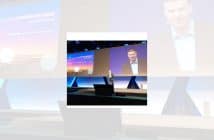Bank of Ireland is planning to release €33 billion in “new” lending into the economy here by the end of 2017 as it pursues a sustainable return to profitability.
In an interview with The Irish Times today, the bank’s chief executive Richie Boucheralso said the number of repossessions in Ireland this year of owner-occupied properties was likely to be in the “hundreds” but would always be a “last resort”.
Mr Boucher said the ambitious lending target followed a strategic review last year, which led to the formulation of a five-year plan for the bank.
It will include €12 billion in fresh lending to SMEs over the next three years and about €13 billion in new mortgages over the timeframe of the plan. The balance will comprise other consumer and corporate lending.
“That’s all new or increased lending,” Mr Boucher said.
“We are strongly supportive of the Irish economy. We’re investing huge amounts of money in our branch network and our payments systems even though we’re having to reduce our operating costs. So we believe in this country.”
Mr Boucher said more than €200 million had been invested in its branches in the past few years to gear it up for this new business. He wants the bank to be the lead provider of lending to Irish SMEs and to have a share of 35 to 40 per cent of new mortgages each year, something it achieved in 2013.
Asked how many home repossessions Bank of Ireland might have here in 2014, Mr Boucher said: “It’s likely to be in the hundreds. Repossessions and requiring customers to sell properties is always part of a mortgage relationship.”
Mr Boucher said its level of repossessions in the UK, where its mortgage book is of a similar size to that in Ireland, is about 300-400 a year.
“We see repossession as a last resort,” he added. “[But] it would be totally disingenuous to say we’re not [going to do any]. It is part of a mortgage book that you have a level of repossessions.”
On debt forgiveness, Mr Boucher said he had to be conscious that its investors, including the State, which has a near 14 per cent stake in the bank, expect a return.
“We got investments. People expect their money back. The money has to come from somewhere. The taxpayers haven’t said they don’t want their money back from the banks.” Source: The Irish Times.



